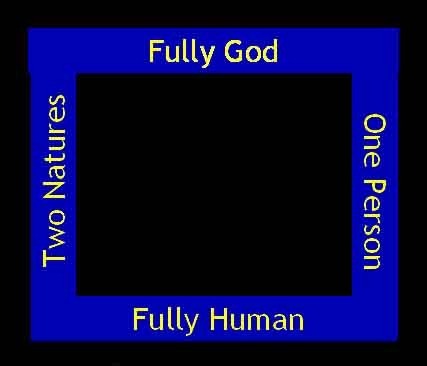Justin Taylor's Blog, page 268
November 7, 2011
An Interview on Why "Work Matters"
I enjoyed this conversation with Tom Nelson about his new book, Work Matters: Connecting Sunday Worship to Monday Work (Crossway):
You can download a PDF of some sample material here, or preview it below:
Free 5-Hour Piper Seminar on Missions
One of the most valuable things about my time at Bethlehem Baptist Church was John Piper's five-hour weekend seminars. Here is his seminar on his book Let the Nations Be Glad! The Supremacy of God in Missions.
You can watch the video below, or stream or download the audio.
Wallace v. Ehrman: Can We Trust the Text of the New Testament?
A little trailer for the debate DVD now available for purchase at CSNT.org:
November 6, 2011
Who Was Francis Schaeffer?
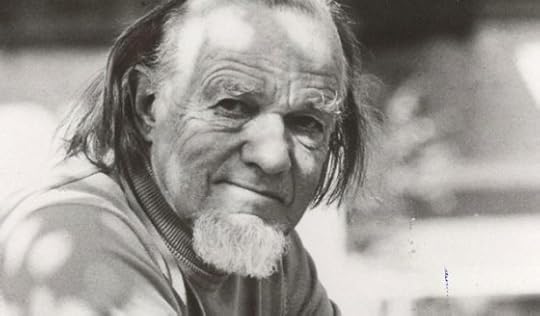
In a tribute entitled "No Little Person" J. I. Packer described Francis Schaeffer (1912-1984):
He was physically small, with a bulging forehead, furrowed brow, and goatee beard. Alpine knee-breeches housed his American legs, his head sank into his shoulders, and his face bore a look of bright abstraction. Nothing special there, you would think; a serious, resolute man, no doubt, maybe a bit eccentric, but hardly unique on that account. When he spoke, his English though clear was not elegant, and his voice had no special charm; British ears found it harsh, and if stirred he would screech from the podium in a way that was hard to enjoy.Nevertheless, what he said was arresting, however he might look or sound while saying it. It had firmness, arguing vision; gentleness, arguing strength; simple clarity, arguing mental mastery; and compassion, arguing an honest and good heart. There was no guile in it, no party narrowness, no manipulation, only the passionate persuasiveness of the prophet who hurries in to share with others what he himself sees.
Packer went on to describe seven ways that Schaeffer contributed to evangelicalism:
First, with his flair for didactic communication he coined some new and pointed ways of expressing old thoughts (the "true truth" or revelation, the "mannishness" of human beings, the "upper story" and "lower story" of the divided Western mind, etc.).Second, with his gift of empathy he listened to and dialogued with the modern secular world as it expressed itself in literature and art, which most evangelicals were too cocooned in their own subculture to do.
Third, he threw light on the things that today's secularists take for granted by tracing them, however sketchily, to their source in the history of thought, a task for which few evangelicals outside the seminaries had the skill.
Fourth, he cherished a vivid sense of the ongoing historical process of which we are all part, and offered shrewd analysis of the Megatrends-Future Shock type concerning the likely effect of current Christian and secular developments.
Fifth, he felt, focused, and dwelt on the dignity and tragedy of sinful human beings rather than their grossness and nastiness.
Sixth, he linked the passion for orthodoxy with a life of love to others as the necessary expression of gospel truth, and censured the all-too-common unlovingness of front-line fighters for that truth, including the Presbyterian separatists with whom in the thirties he had thrown in his lot.
Seventh, he celebrated the wholeness of created reality under God, and stressed that the Christian life must be a corresponding whole—that is, a life in which truth, goodness, and beauty are valued together and sought with equal zeal. Having these emphases institutionally incarnated at L'Abri, his ministry understandably attracted attention. For it was intrinsically masterful, and it was also badly needed.
November 5, 2011
The World Series and Redemptive History
Thoughtful meditation from Jonathan Parnell applying Jonathan Edwards's understanding of typology to the World Series and the gospel.
November 4, 2011
Thinking through Christology
One of the helpful things about philosophy is that it can take commonsense things that we know intuitively and formalize them into definitions with distinctions.
Take the question, "Who are you?"
We would answer this in terms of those properties—attributes, qualities, characteristics—that make me who I am as an individual. We often answer this identity questions by pointing to our relationships (firstborn son of my X and Y; husband of Z; father of A, B, and C) or our physical characteristics (think driver's license: address; certain height and weight; color of skin, hair, eyes).
A less common question, but one quite relevant for theology, is "What are you?" With regard to persons, this is getting at the kind of being that one is. This can be called a "kind essence"—the set of properties (or collection of characteristics) sufficient to establish one's membership in a certain "kind" of being (e.g., God, angel, human, animal, etc.).
There is also a difference between "common properties" and "essential properties."
Common properties would be the sort of qualities that most people in that kind or category would have.
Essential properties would be the things that every member of that category has to have—such that to lack one of these properties is not to be a member of this kind.
A common property of being a human being might be "having two arms and two legs." It's a true characteristic in most cases. But obviously an amputee is still a human being, therefore we know it's not an essential property. Properties like "having a human soul" would be in a different category. All living human beings have human souls, such that the absence of a human soul would mean that the being is not a human being.
There are some properties that might give us a bit more pause. For example, we say "to err is human." But if we're operating from a biblical worldview we know that this is true for all of us who have inherited Adam's sin—but it's not necessarily true for the category "human being" per se. Or take the property "being the biological product of two parents." Again, it's true for almost every human, but it is not a necessary property, as a human clone would still be a human being.
Believe it or not, this is not merely fun philosophical slicing and dicing. It actually can help us to think about Jesus as God Incarnate, the God-Man.
Here's a simple chart (courtesy of Fred Sanders) summarizing Chalcedonian orthodoxy on the person of Jesus:
Let's take our second question above, "What are you?" and apply it to Jesus.
On the one hand, he (like all human beings), belongs to the natural kind of humanity. Even if he is not merely human, he is fully human. He has all the essential properties required for full humanity.
On the other hand, he belongs to the natural kind of divinity. He lacks no essential property or attribute required for him to be fully God.
What about the question "Who are you?" This is asking about Jesus' individual essence. If we understand this to be the essential properties that make him who he is, then we would want to include his divine kind-essence—his fully-God nature—for those cannot be lost without him ceasing to be the Son of God. Jesus' human kind-essence, on the other hand, is contingent. It is not something he had forever. And if he had never become incarnate, he still would remain God's Son.
So in everyday language, we could paraphrase the conclusion of Chalcedon as saying that Jesus is "one who" (one person), with "one what" (fully divine nature), who took on "another what" (fully human nature) in the incarnation—such that he is now "one who" (one person) with "two what's" (two natures).
In so doing, Chalcedon insisted, these "two what's" experience "no confusion, no change, no division, no separation."
Now this raises another question. How should we talk about qualities that would apply to only one of Jesus' natures? For example, "existed from all eternity" applies to his divine nature, not his human nature; "was tired" applies to his human nature, not his divine nature.
The Italian theologian Peter Martyr Vermigli (1492-1562) gives the right answer:
Christ Jesus is one person in whom the two natures subsist in a way that they are joined with each other so that they cannot in any way be pulled apart from each other.
Therefore all the actions of Christ should be attributed to the hypostasis or person because the two natures do not subsist separately and by themselves; neither do they act separately as if one nature is said to do some certain work but the other nature something else.
Therefore just as the [two natures] have one hypostasis or experience, so every work of Christ of any sort should be ascribed to the hypostasis or person itself.
Meanwhile the properties of the two natures which are in Christ should be kept distinct, whole and unmixed so that they cannot in any way be confused. Hence when Christ is said to have been born of the Virgin Mary, been wounded, died, and buried and taken up into heaven—all these things assigned to the person itself in which the two natures exist, but insofar as he was a man, not as God. The divine nature does not allow these changes and sufferings. Again when it is said that Christ is the creator of heaven and earth, that he was before Abraham existed, even that he exists from eternity and is everywhere—these are to be understood of the person or hypostasis, but insofar as it was God, not as a man. For such things are not proper for a created and finite nature.
("A Letter to Poland," in The Peter Martyr Reader, pp. 127-128.)
In all of our analysis, let us remember that our goal should always be for these doctrines to terminate on wonder and worship of the Incarnate God:
Infinite and yet an infant.
Eternal and yet born of a woman.
Almighty, and yet nursing at a woman's breast.
Supporting a universe, and yet needing to be carried in a mother's arms.
Heir of all things, and yet the carpenter's despised son."
—Charles Haddon Spurgeon
That man should be made in God's image is a wonder,
but that God should be made in man's image is a greater wonder.
That the Ancient of Days would be born.
That He who thunders in the heavens should cry in the cradle?"
—Thomas Watson
Man's Maker was made man
that the Bread might be hungry,
the Fountain thirst,
the Light sleep,
the Way be tired from the journey;
that Strength might be made weak,
that Life might die.
—Augustine
And the Word became flesh and dwelt among us,
and we have seen his glory,
glory as of the only Son from the Father,
full of grace and truth."
(John 1:14)
Thanks to James Anderson and Steve Wellum for providing helpful comments on an earlier draft of this, and Chris Castaldo for pointing me to the Peter Martyr quotation.
"Kingdom Work" Is More Than Just "Good Work"
An important point from Scot McKnight:
. . . Too many today have abstracted the ethical ideals from Jesus' kingdom vision, all but cut Jesus out of the picture, and then called anything that is just, peace, good and loving the "kingdom." The result is this equation: kingdom means goodness, goodness means kingdom. Regardless of who does it. My contention would be that kingdom goodness is done by kingdom people who live under King Jesus. I applaud goodness at large. This is not a question of either or but whether or not all goodness is kingdom goodness. Some say Yes, I say No. . . .
Get out your Bible and find the references to kingdom and you will discover that it refers to a society in which God's will is done, with Jesus as the King, where the Story of Israel finds its completion in the Story of Jesus and where that same Story of Jesus shapes everyone. Kingdom refers to that Davidic hope for the earthly world where God sets up his rule in the Messiah and where people live under that Messiah as God's redeemed and liberated and healed and loving and peaceful and just people.
Yes, feeding the poor is good and it is God's will for this world, whoever does it. But "kingdom" refers to that special society that does good under Jesus, that society that is buried in his death and raised in his resurrection and lives that Story out in our world today. It makes no sense to me to take this word of Jesus that he used to refer to what God was doing in and through him at that crucial new juncture in time and history and use it for something else.
Introducing the Reformation
Matthew Barrett recently interviewed Michael Reeves on the Reformation. Here are the questions:
What was the church like during the Middle Ages and what did they believe when it came to salvation?
Were there any forerunners to the Reformation and what happened to them when they sought to voice their protest?
How did Luther come to realize that the Roman Catholic Church was in error and what for Luther was at the heart of his disagreement with Rome?
When we think of the Reformation it is Luther who gets most of the attention, but Zwingli also played an important role as well. Who was Zwingli and what was his contribution to the Reformation?
What was so radical about the "Radical Reformers"? What aspects of their theology should we be thankful for and what aspects should we reject?
Talk to us about John Calvin, particularly his debate with Cardinal Jacopo Sadoleto. Do you see any resemblance between Sadoleto's efforts to pull Protestants back home to Rome and the decision of some evangelicals today to return to Rome?
It is probably more accurate to speak of reformations than the reformation. Can you explain what brought about the Reformation in Britain and who were some of the major reformers in this movement?
Why was it such a big deal to have the Scriptures translated into the vernacular during the reformation period and who were some of the most important Bible translators?
Who were the Puritans and were they in basic continuity or discontinuity with the reformers before them?
Is the Reformation over today? Do Catholics and Evangelicals today pretty much agree on the doctrine of justification or are there still significant differences?
You can read his answers here.
For some more introductions to the Reformation—including one from Dr. Reeves—see below.
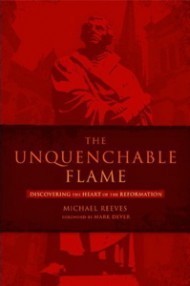
Michael Reeves, The Unquenchable Flame: Discovering the Heart of the Reformation.
Read for free the table of contents, Mark Dever's foreword, and chapter 1.
"With the skill of a scholar and the art of a storyteller, Michael Reeves has written what is, quite simply, the best brief introduction to the Reformation I have read. If you've been looking for a book to help you understand the Reformation, or just to begin to study church history, this little book brings history to life."
—Mark Dever
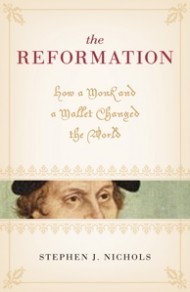 Stephen J. Nichols,
The Reformation: How a Monk and a Mallet Changed the World.
Stephen J. Nichols,
The Reformation: How a Monk and a Mallet Changed the World.
Read for free the table of contents, the introduction and chapter 1, as well as chapter 6.
"Professor Stephen Nichols is already well-known for his remarkable ability to make history live and sing. This new work is no exception and will simply enhance his well-deserved reputation. It is a scintillating helicopter tour of the amazing men—and wonderful women—of the Reformation. Here conviction joins with courage, holiness with humor, in a wonderful medley of Christian heroes and heroines."
—Sinclair B. Ferguson
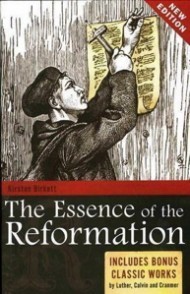
Kirsten Birkett, The Essence of the Reformation.
In addition to Dr. Birkett's overview of the Reformation, this book includes excerpts from classic works by Luther, Calvin, and Crammer.
Read for free the preface, the table of contents, all of part 1, and portions from the classics.
"I do not know any book that more succinctly gets across, in readable prose, what the Reformation was about. This new edition combines Birkett's superb text with some judiciously selected primary documents. This is a book to distribute widely among lay leaders and other Christians who want to be informed of the heritage of the gospel that has come down to us."
—D. A. Carson
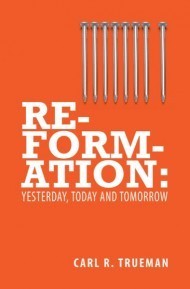 Carl R. Trueman, Reformation: Yesterday, Today, and Tomorrow
Carl R. Trueman, Reformation: Yesterday, Today, and Tomorrow"This fine book should be required reading for all Christians—and especially for those who doubt whether the Protestant Reformation has anything left to say to us in our day. Stating that "the Reformation represents a move to place God as he has revealed himself in Christ at the centre of the church's life and thought," Trueman then retrieves Luther's theology of the cross, argues that because the Reformation "was above all a movement of the Word—incarnate in Christ and written down in the Scriptures," and because the Spirit works through the Word, "the Word written and the Word preached are both central to Christianity and are not simply cultural forms which can be shed when culture moves on," and then closes with a chapter on Christian assurance that recognizes our assurance as the foundation for our Christian activity. Along the way, he scatters nugget after nugget of insight into what is core to the Reformation legacy, motivating his readers to embrace this core again."
—Mark R. Talbot
November 3, 2011
The Role of Scripture in the Reformation and the Life of Luther
Timothy George, at the Reformation Spirituality Conference at Beeson Divinity School, lectures on "Captive to the Word," illustrated through the life and theology of Martin Luther. He looks at (1) the Bible and Luther's breakthrough; (2) the Bible and Luther's breakout, (3) Luther's three rules for reading Scripture; and (4) Luther's last will and testament to the church:
Do People Who Commit Suicide Go to Heaven?
There are only two correct responses to this question.
"Why do you ask?" and
"It sounds like things are really hard for you. Please tell me what's happening."
We are allowed minor variations on these, but do not say this: "Suicide is not the unpardonable sin. If we think that suicide is immune to the cleansing blood of Christ we have misunderstood the extent of redemption."
This might be theologically correct; it is pastorally abysmal.
Here is the principle: theological questions are often personal questions in disguise; they are about the burdens on a person's heart. Please do not respond with theological propositions or ethical guidelines. Instead, use these questions as the time to know and shepherd the person.
Justin Taylor's Blog
- Justin Taylor's profile
- 44 followers


